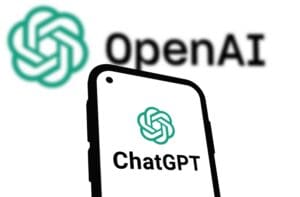OpenAI, the San Francisco-based developer behind ChatGPT, is reportedly in early-stage discussions over a potential share sale that could see the artificial intelligence company valued at $500 billion, surpassing Elon Musk’s SpaceX in market worth.
According to Bloomberg, the proposed transaction would involve the sale of shares held by current and former employees, with existing investors — including Thrive Capital — exploring a buy-in at the higher valuation. If completed, the deal would increase OpenAI’s valuation by nearly two-thirds, up from its last known $300 billion mark.
This would place the AI pioneer above SpaceX, which is currently valued at around $350 billion and is said to be seeking a $400 billion valuation in its next funding round.
OpenAI and Thrive Capital declined to comment on the report.
The move comes as OpenAI faces mounting competition for AI talent, especially from Meta, which is aggressively recruiting for its “superintelligence” division. Meta has already poached key hires from OpenAI, reportedly offering signing bonuses of up to $100 million to lure top engineers.
OpenAI CEO Sam Altman has downplayed the defections, insisting that Meta has taken “none of our best people”.
The share sale, if approved, could act as a retention tool, offering staff liquidity without requiring a full public listing — a common strategy among high-growth tech firms to motivate employees while attracting new capital.
The report follows a flurry of product announcements from OpenAI. Altman recently shared a screenshot hinting at the release of GPT-5, the latest iteration of its flagship AI model, and confirmed the launch of two new open-source AI models on Tuesday.
“We’re excited to make this model, the result of billions of dollars of research, available to the world,” said Altman. “It’s about getting AI into the hands of as many people as possible.”
The move signals OpenAI’s intention to compete more directly with Meta and Chinese rival DeepSeek, both of which have stepped up the release of open-source AI models in a bid to influence global adoption and innovation.
Despite the open-source push, OpenAI’s core business remains built around its “closed” proprietary models, offered through subscription-based versions of ChatGPT and integrations with enterprise platforms.
OpenAI operates under a non-profit governance structure, with a for-profit subsidiary handling commercial activity. However, ongoing talks to transition into a full for-profit model have stalled, reportedly due to complex negotiations with major investor Microsoft.
“Obviously in any deep partnership there are points of tension,” Altman told The New York Times podcast in June. “But on the whole, it’s been really wonderfully good for both companies.”
In March, a US court denied Elon Musk’s attempt to block OpenAI’s shift to a for-profit model. Musk, a co-founder who left OpenAI in 2019, has since been publicly critical of the company’s commercial direction, arguing it has deviated from its original non-profit mission to develop AI “for the benefit of humanity”.
OpenAI is also expanding into hardware, having acquired io, a consumer tech startup led by former Apple designer Sir Jony Ive, in a $6.4 billion deal.
Altman has reportedly told staff that the company intends to produce 100 million AI-powered personal devices, dubbed “AI companions”, that could become part of daily life. Production is expected to begin by 2027, with Altman calling the prototype “the coolest piece of technology the world will have ever seen.”
The rumoured share sale would see OpenAI take a commanding lead in the AI valuation race, ahead of not just SpaceX, but also rivals like Anthropic, which is said to be seeking a $170 billion valuation in an upcoming funding round. Anthropic was founded by former OpenAI employees and is backed by Amazon and Google.
With AI models becoming increasingly expensive to train — requiring vast data centre resources and cutting-edge chips — access to capital is critical for scale and sustained innovation.
If the $500 billion valuation materialises, OpenAI will join the ranks of the world’s most valuable private companies, further cementing its position as a global AI leader at a time when regulation, ethics, and geopolitics are converging around the future of intelligent systems.
Read more:
OpenAI in talks over $500bn share sale, potentially surpassing SpaceX in value

